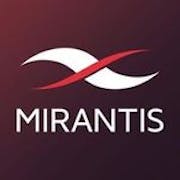Are you looking to buy virtualization software but you don't know where to start? Our comprehensive buyer's guide breaks down some expert insight to help you find the perfect solution for your needs and budget.
As businesses evolve, it has become increasingly clear that virtualization technology can be a game changer. Virtualization systems which allow you to run multiple operating systems on a single physical machine, can help you improve your IT agility and boost your productivity. However, with a wide range of options available in the market, each with its own set of features and capabilities, choosing the right virtualization tool for your organization can be a challenging task. In this buyer's guide, we'll explore the key features and benefits to help you navigate the crowded marketplace to find the solution that best fits your business requirements.
What is virtualization software?
This is a type of software that creates a virtual environment within an existing operating system, allowing multiple operating systems to run on a single computer. This technology is particularly useful for businesses with a large number of servers or computer workstations that require constant maintenance and upgrades. Instead of manually managing each of these systems, the tool enables administrators to manage them remotely from a single console, saving time and resources.
It has common use cases which include:
- Running multiple operating systems on a single computer. Virtualization technologies enable one computer to perform the work of multiple computers by utilizing up to 100% of the server’s available hardwareto handle multiple workloads simultaneously.
- Creating virtual test environments for software development.
- Consolidating servers to reduce the physical footprint and power usage.
- Disaster recovery and business continuity planning.
- Creating and managing virtual desktops for remote workers.
Many types of companies benefit from using this powerful tool and these include:
- Large enterprises with a large number of servers or workstations.
- Cloud service providers who need to manage multiple virtual environments for their clients.
- Software development companies who need to test software across different operating systems.
- Small and mid-sized businesses that want to reduce the cost of server management and maintenance.
What are the benefits of using a virtualization solution?
Companies are looking for every possible advantage they can find to remain competitive. One technology that has given businesses an edge is virtualization. Although this technology has been around for a while, it's still transforming the way businesses store, manage, and operate their IT infrastructure.
It offers a wide range of benefits which include but are not limited to the below:
1. Cost-effectiveness: By virtualizing servers, businesses can significantly reduce their hardware and maintenance costs. A single physical machine that runs several virtual machines can replace multiple standalone servers, saving on electricity, cooling, and pricey hardware upgrades. In 2022, 23% of respondents worldwide stated that their company adopted a serverless status, while another 28% were planning to go serverless.
2. Scalability: Virtualization allows for easy scalability of resources, allowing businesses to add or remove virtual machines as their needs change. This scalability makes it easy for companies to expand without experiencing downtime or having to acquire additional equipment or hire additional staff.
3. Disaster recovery: In the case of an unexpected system failure or downtime, the system improves recovery time, making it easier for businesses to restore their services with minimum downtime.
4. Security: It also provides the option to isolate sensitive systems from the public network. This helps to secure the company's data, prevent data breaches, and keep confidential information safe.
5. Efficiency: Virtual machines can be created quickly and easily, and resource allocation can be efficiently managed to ensure optimum performance.
6. Centralization: A virtualization platform allows businesses to centralize their applications, data, and operating systems. This means that these can be accessed from anywhere, which provides great flexibility for remote workers.
10 key features of virtualization software
Due to the ability to increase flexibility and efficiency, virtualization software solutions have become popular in the business landscape. This is also because they offer a wide variety of essential features such as:
1. Resource optimization: The software divides physical resources such as processing power, storage, and memory among multiple virtual machines, allowing for more efficient resource utilization.
2. Isolation: Multiple virtual machines can run on a single physical machine, each operating as if it were the primary OS to ensure there is no interference from other virtual machines.
3. Improved backup and recovery: It can take advantage of snapshot technology, which captures a virtual machine's entire state at a specific point in time, making it easy to restore the system to its state before the issue occurred.
4. Agility and scalability: It makes it easier to manage and scale infrastructure dynamically, allowing for quicker responses to shifting business requirements.
5. Cost savings: It also reduces hardware and operating costs by consolidating physical servers and using fewer physical resources with statistics from LLCbuddy recording a cost reduction by 31%.
6. Environment virtualization: Organizations can create multiple virtual environments within a single physical server, enabling the creation of production-like environments in a cost-effective manner.
7. Enhanced security: A virtualization program protects against unsafe code execution by isolating virtual machines from one another and protecting the Host environment.
8. High availability: Virtualization software can provide continuous uptime by quickly moving virtual machines to healthy server nodes in the event of a hardware failure.
9. Better testing: The tool makes it easier to test applications. Virtual machines can be created and destroyed quickly, allowing applications to be evaluated in different settings.
10. Authorization and authentication: It enables users to authorize and authenticate users to access virtual machines and monitor their activity.
Top considerations when implementing a virtualization platform
When it comes to purchasing a virtualization package there are several factors to consider that can help you make the right choice. Here are some of the top factors to consider:
1. Compatibility: The application you choose should be compatible with your current hardware and software configurations. Make sure to check compatibility with your server's processor, memory, and storage.
2. Management tools: You will want a tool that is easy to manage and monitor. Look for features such as automatic load balancing, centralized management, and real-time resource allocation.
3. Performance: The solution should offer reliable performance without slowing down your systems. Look for performance optimization features such as memory management and dynamic resource allocation.
4. Scalability: Make sure the tool can scale with your business's growth. Consider features such as the ability to add more virtual machines, dynamic load balancing, and scalability management tools.
5. Security: Virtualization technology should include built-in security features to protect against cyber attacks and data breaches. Look for security features such as secure virtual machine isolation, encryption, and secure hypervisors.
6. Support and upgrades: Make sure the vendor offers timely support and regular upgrades to keep your software up to date with the latest technology and security patches.
Emerging trends for virtualization technology
Virtualization trends continue to shape the landscape of IT, offering organizations greater flexibility while improving overall performance and security. One of the biggest trends to watch out for is cloud migration, where businesses are moving their virtualized workloads to remote cloud environments.
Another major trend is the shift towards greater security over performance. With the growing number of threats to data security, IT teams are prioritizing secure systems over software that gives better performance. Network virtualization is another key trend, allowing teams to create entire networks from virtualized components. Additionally, data and desktop virtualization continue to be important trends, as they enable IT teams to manage and secure data more effectively.
Finally, the rise of 5G and edge computing technology presents new opportunities for virtualization technology to improve efficiency and productivity. As the global virtualization technology market continues to grow, it is important for businesses to stay ahead of these trends to remain competitive in the future.
Conclusion
In conclusion, by understanding the various types of virtualization, such as hardware, software, and network virtualization, and by selecting the right virtualization software, users can optimize their IT infrastructure, improve system performance, and reduce operational costs. Proper implementation and management of virtualization solutions can lead to significant improvements in productivity and resource utilization.








